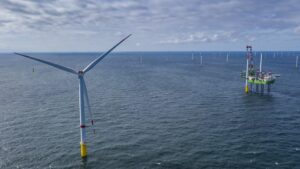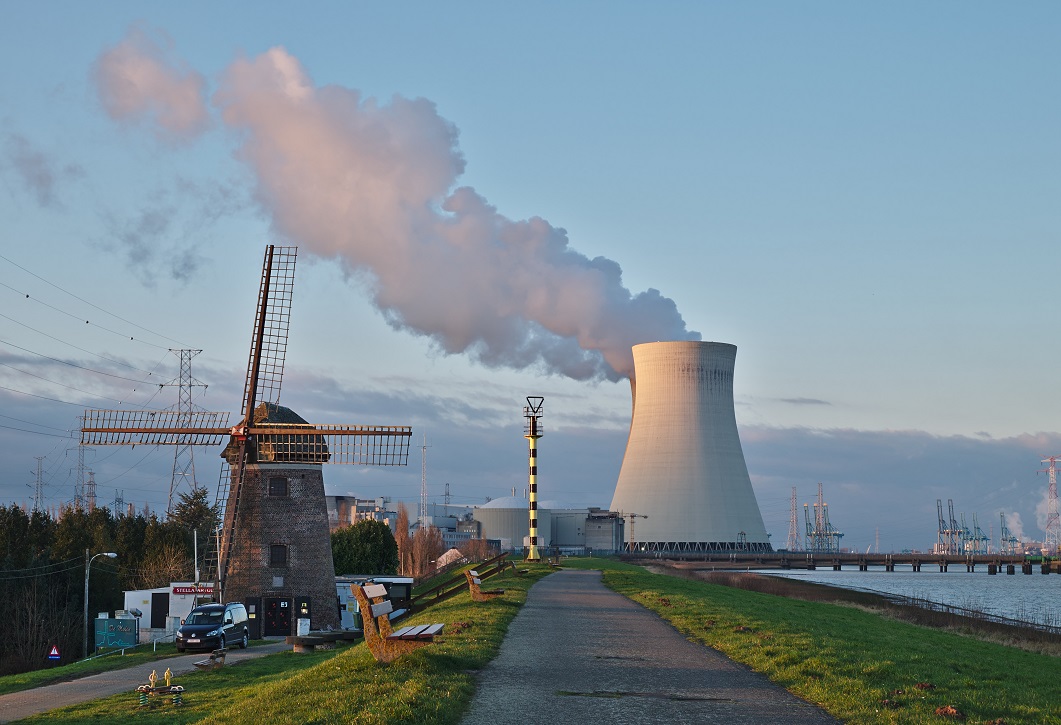For almost two decades, Belgian politicians have hummed and hawed about whether to reprieve, rebuild or remove their ageing nuclear power plants. But the climate crisis and Russia’s invasion of Ukraine have helped concentrate their minds.
Vladimir Putin is unlikely to care much about Belgium’s intractable politics, but he has almost single-handedly cleared up one of the country’s obdurate issues. The decision by Russia’s president to invade Ukraine in February has at a stroke resolved Belgium’s two-decade-long wrangle over its ageing nuclear power plants.
The country was already grappling with broader energy issues as it transitions towards renewable power sources. But when Russia’s tanks rolled across Ukraine, Belgian politicians across the board accepted that it was time to speed up the switchover. In other words, better to keep the nuclear plants running than accept more of Moscow’s oil and gas.
On March 19, Prime Minister Alexander De Croo overturned a 7,000-day-old Belgian taboo. It was way back in January 2003, when Justin Timberlake’s Cry Me A River was flying high in the charts, that Guy Verhofstadt’s government formally agreed to gradually phase out nuclear power plants.
De Croo’s Vivaldi coalition has now agreed to extend for a further 10 years the two newest reactors, built in 1985, Doel 4 and Tihange 3, beyond their previous end-date in 2025. Their combined 2GW of electricity capacity could be enough to power around two million homes.
De Croo is hoping for "respectful" talks about the extension cost with reactor owner Engie. That's the French multinational some 2.3 million Belgians ultimately pay their gas and electricity bills to. "For too long now, Belgium lacked a long-term vision about energy," he said, after the coalition decision. As an extension of just two nuclear reactors is not enough, the government is preparing for two new gas power plants to take part in the country's compensated power auctions.
Green shift
In political terms, the decision marks a stunning shift for the coalition’s green parties, which were once defined by their opposition to nuclear power. Until recently, Energy Minister Tinne Van der Straeten, from the Flemish Groen party was claiming the government could take its time debating the issue. She also tried deflecting pressure by emphasizing renewable energy sources. "If there's a will, there's a way," she said at a recent meeting of EU energy ministers. "Sun and wind make us independent from Russia and other countries.”
But she too admitted that the war in Ukraine has changed the situation: energy security has ridden up the list of priorities. And although she pushed for €8 billion to be pumped into the country's energy transition, the final sum agreed was only €1.16 billion.
That money will provide a little boost to offshore wind, hydrogen, advanced small nuclear reactors and cheaper train and bus tickets. If you want solar panels on your roof, the money will ensure you pay just 6% VAT instead of 21% this year and in 2023. The aim is to have 30% of Belgium’s electricity from renewable energy by 2030.

Renewable energy accounts for 22.7% of Belgium's electricity mix
Still, Van der Straeten insisted the decision was good for the green transition. "I'm a happy energy minister. Let's get to work," she said afterwards. “After 20 years of inaction, it’s a green acceleration: speeding up the transition with more wind and solar, reducing energy dependence by getting out of fossil fuels, and reducing energy bills thanks to cheaper renovations.”
Her U-turn has been exploited by her political opponents, including her frenemies in the coalition. The head of the French-speaking centre-right MR, Georges-Louis Bouchez, who hailed the decision as a triumph of “reason over dogma,” laid into her. "The Greens made nuclear power an ideology. It's a technology," he said. The opposition, too, was merciless, with Georges Dallemagne, from the French-speaking Christian democrats (cdH) saying, "The wish you made evident several months ago to stop the last nuclear power plants was already absurd then. Today, it is completely irresponsible.”
However, one of the major beneficiaries of the government's decision will be Engie, the owner of the country's nuclear power plants. The state-owned French multinational's revenues in Belgium shot up in 2021 to almost €4.4 billion for 2021. Paradoxically, Engie's continuing profits from extending the lifetime of its Belgian nuclear power plants, and building more gas plants, will now help it offset some €1 billion in losses from its involvement in Russia's Gazprom pipeline project Nord Stream 2, which filed for bankruptcy early in March.
Political climate change
But the war changed the political climate, and nuclear power is now accepted as part of Belgium’s energy mix. "The war in Ukraine tilted the playing field," says Pieter Timmermans, chief executive at the Federation of Belgian Enterprises (VBO/FEB). “We cannot move away from nuclear energy now. I would not understand if, at this point, we decided to increase our dependence on Russian gas.” He already asked in February for the two nuclear reactors to be kept open after 2025. In the long term, though, he "fully" supports transitioning to sustainable energy.
However, despite the deal, there are still concerns that the government is not moving fast enough towards renewables. "How can we reduce dependence on Russian oil and maintain such an advantageous tax regime for company cars and fuel cards,” says Inter-Environnement Wallonie's Arnaud Collignon, highlighting the much-criticised tax breaks for company cars. “There are a series of taboos that have to be broken to truly begin the energy transition.”
Nor are safety fears completely allayed. Greenpeace Belgium's Jan Vande Putte warns that the nuclear plants, located near densely populated Antwerp as well as halfway between Namur and Liège, are an unacceptable risk even in peacetime. "And extension will not reduce high energy prices, improve security of supply, and hardly reduce gas consumption," he says. "There are also legal obstacles. Engie itself wants to close the reactors, so talks with the firm threaten to land the taxpayer with a serious hangover.”
And biogas is not the answer, in the short term at least. "Replacing natural gas with biomethane is not yet feasible. Production is still quite low," says Dirk Van Evercooren, director-general of the Flemish renewables association ODE. However, there are hopes that biogas help eventually: Flanders Energy Minister Zuhal Demir recently opened the Aquafin sewage site in Kielsbroek, south Antwerp, that feeds bio-methane into the network and is used to heat homes.
Still, the government has finally moved to pull Belgium from the teat of fossil fuels, albeit via nuclear energy. It may have taken a war to focus political minds, and it may take years to complete the withdrawal, but the course is now set.
Nuclear share of the pie
Grid operator Elia says Belgium's electricity mix was mostly nuclear (52%) in 2021 followed by gas (25%) and renewables (22.7%). Nuclear phase-out plans would have seen a total of 5,761 MW of electricity brought offline with Doel 3 shutting down first in October this year, followed by Tihange 2 in February 2023 and the other four units in 2025.
Nuclear extension may put a damper on biomethane: only 7.5% of expected gas consumption in 2030 is expected to be covered by renewable biomethane, a little more than the 4-6% of the country's natural gas supplies ultimately purchased from state-controlled Gazprom.

